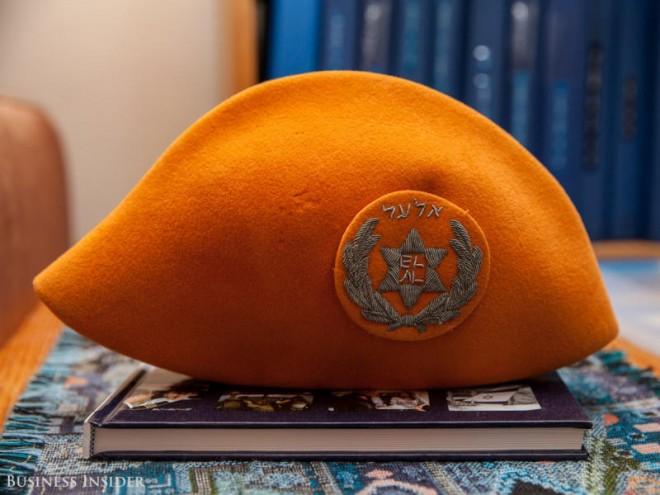Marvin Goldman, who has been flying with El Al Israel Airlines since 1978, has saved more than 40,000 items from the airline, including an extensive collection of uniforms and thousands of archival images.
Goldman, who is part of the World Airline Historical Society, keeps the fascinating items in his New York City apartment, which he plans to later open as a museum.
We visited his home to get a firsthand look at how airline fashion has evolved, from the first El Al flight-attendant uniform introduced in the '50s to what you'll more commonly see on the airline today.
Marvin Goldman has filled his apartment with fascinating items from El Al over the past few decades. Some artifacts date as far back as 1949.
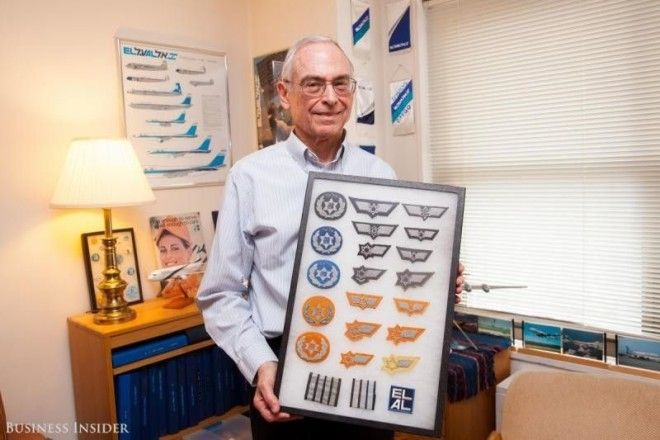
One of the oldest items in Goldman's collection are the first two wings pictured here, which date back to 1949. They were made of metal and were only in use for a short time, until wings made of cloth and gold thread were introduced in mid-1949.
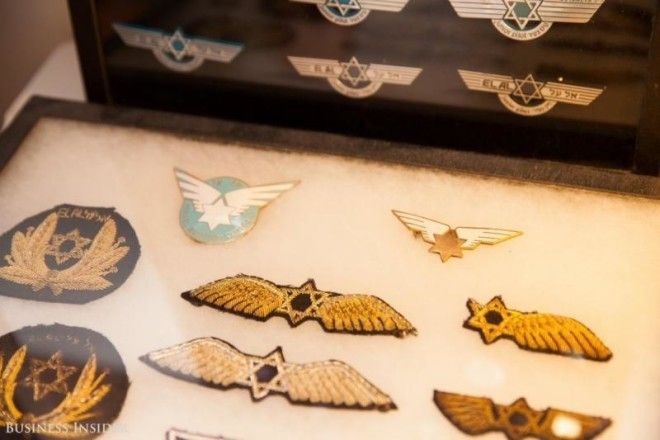
This 1951 photo shows the airline's very first flight-attendant uniform. From 1949 to 1957, uniforms generally came in gray or bluish-gray, though a few flight attendants wore uniforms in dark blue.

Flight attendants would also carry these handbags throughout the '50s. Sometimes they were also given out to VIP travelers.
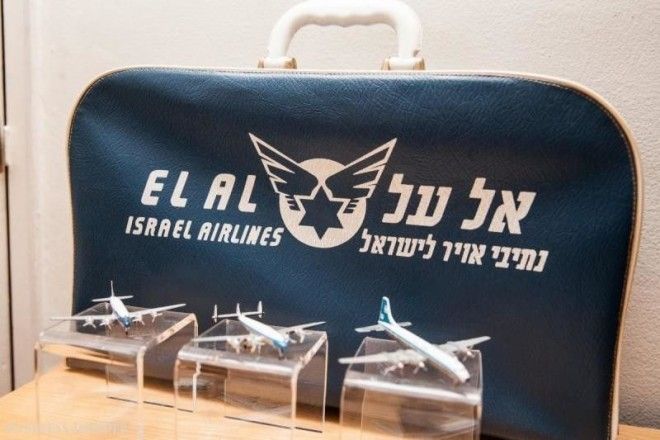
Hats were a popular trend back in the day — this navy hat was used in the late '50s and early '60s. The hats of that time were made in a more conservative style.
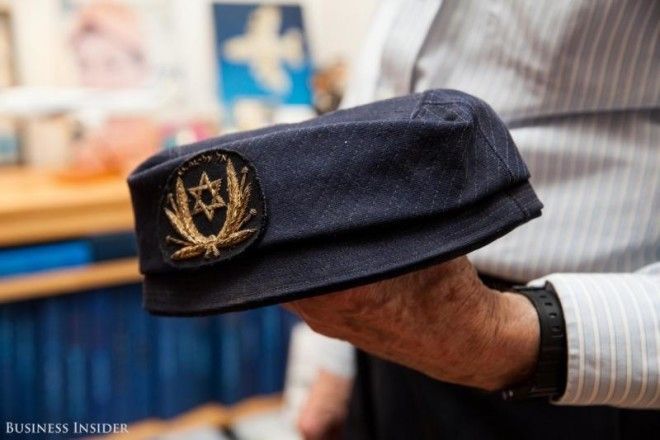
This hat was in use from the 1950s to 1969. When hats did not contain leaf clusters on their design, it symbolized that they were typically worn by the first officer or by a lead male cabin flight attendant.
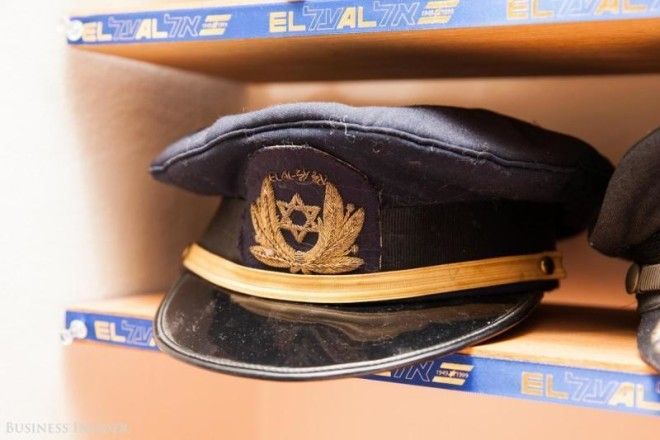
This hat, which dates back to 1969, includes the leaf clusters, which indicates that it was worn by the captain (or the chief pilot) of the aircraft.

The "space-age helmet," inspired by trips to the moon by the Americans and Russians, would be introduced later, in 1969. The hat came in two bold colors: blue for the ground hostesses and orange for the in-flight hostesses.

In the late '60s, airlines started introducing bright and colorful uniforms. "It was a period of optimism, with Russia and the US having gone to the moon," Goldman said. This was also the era of the miniskirt, and uniforms became much more flashy.

Ground hostesses wore blue suits, a blue hat, blue gloves in the winter, and white gloves in the summer. Suits were expected to be consistently buttoned up, and unless they were experiencing extremely hot temperatures, the belt would also be closed.
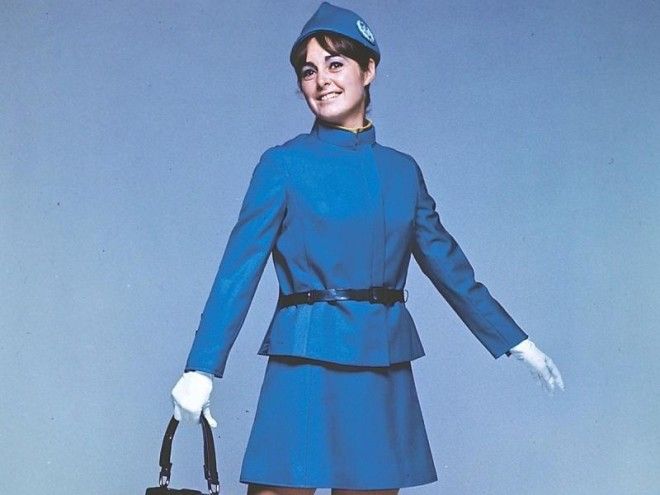
Ground hostess uniforms from this time included cornflower blue and lime green sweaters, which complemented the space-age helmet.
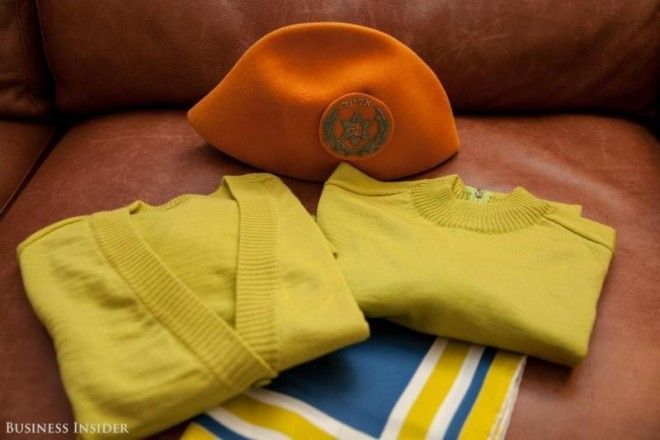
This was also the first time scarves were introduced for all attendants, with various styles that again included bright colors and patterns. They were worn throughout the '70s and '80s, and were designed by notable designers like Pierre Balmain.
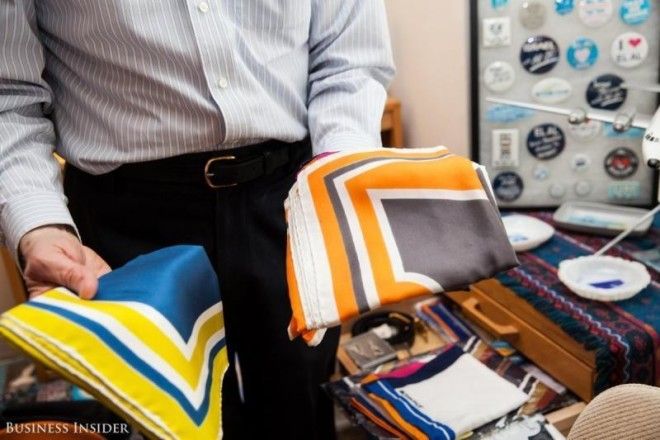
Pictured here is a booklet from 1969 that explains how to properly wear the uniforms. For air hostesses, the suits were gray in the winter and orange in the summer. They also had orange wool coats for winter and a mustard raincoat for summer. They wore this along with black leather gloves in the winter and white gloves in the summer.
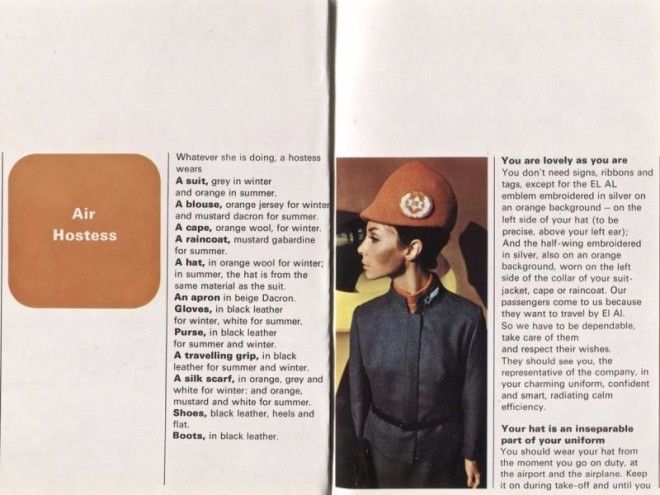
This is the cape that was worn during colder temperatures.
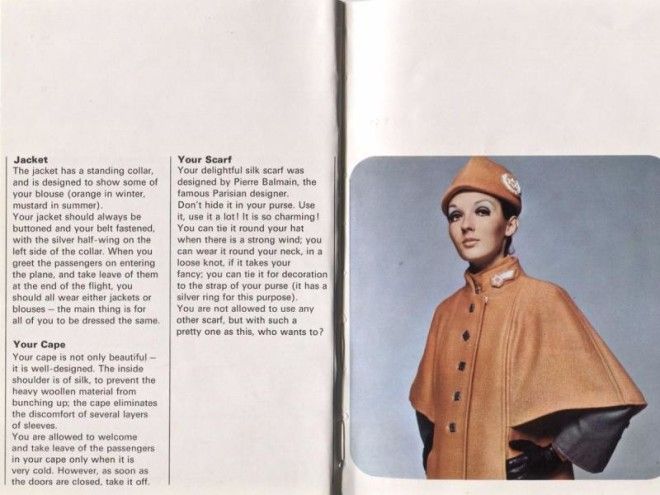
Aprons were also a popular item at the time.
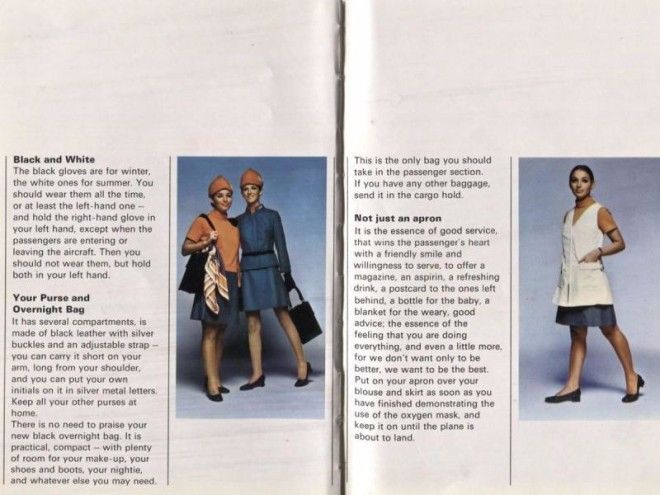
The typical uniform for men in 1969 included a gray suit, a long-sleeved white shirt, a black raincoat, and a gray hat with a silver emblem. Aircrews, ground operations, and transport staff would also wear a black woolen vest, yellow wool scarf, and other accessories.

This was another, more playfully designed version of the bag that was introduced in the '60s. These bags were typically given out to passengers during tours.
Advertising
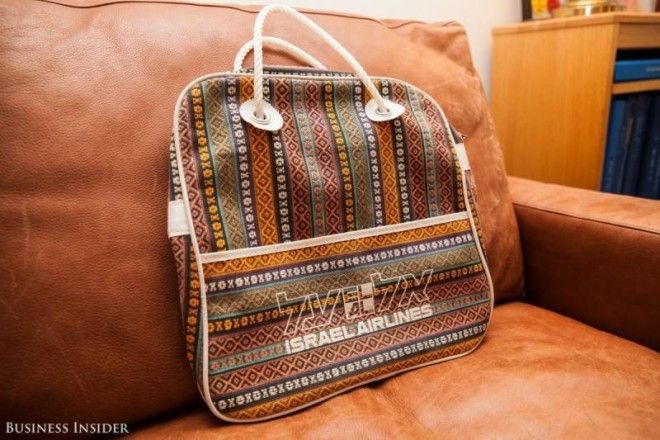
In the early '80s, there was a return to a more conservative style. The dominant color was navy blue for both men and women, and blouses were white. The uniforms pictured here were introduced in 1984.
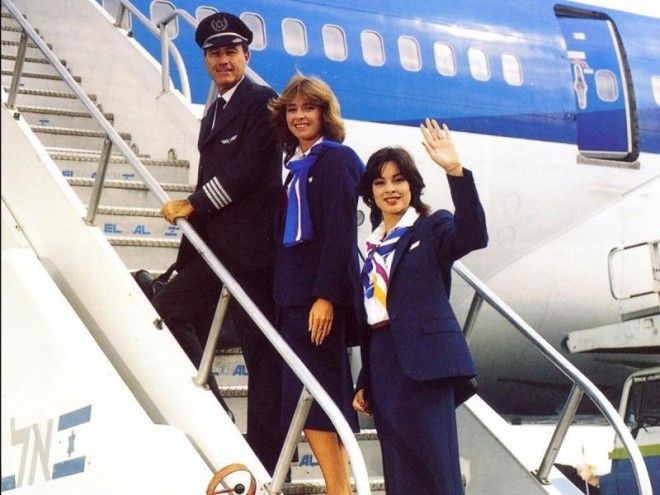
New scarves were also introduced for hostesses in 1984, with an example of the design pictured here. Hats were no longer required at this time, except for pilots.
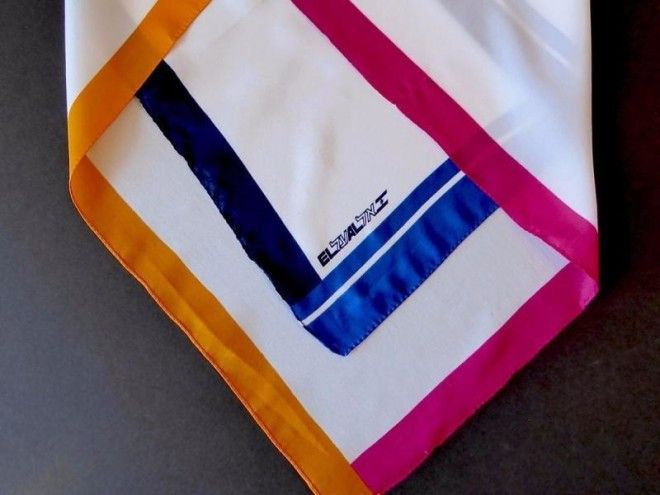
Even the blankets came with playful designs, like this one from the '70s.

The blankets varied in design and colors. The pink blanket in the back was used in the '70s, while the blue blanket was introduced in the '80s.

After 1984, gold returned as the trim color of choice for uniforms, and coats came in both double-breasted and single-breasted versions. This captain's jacket was in use from 1984 to 1999, and the number of stripes indicated the position of the wearer.
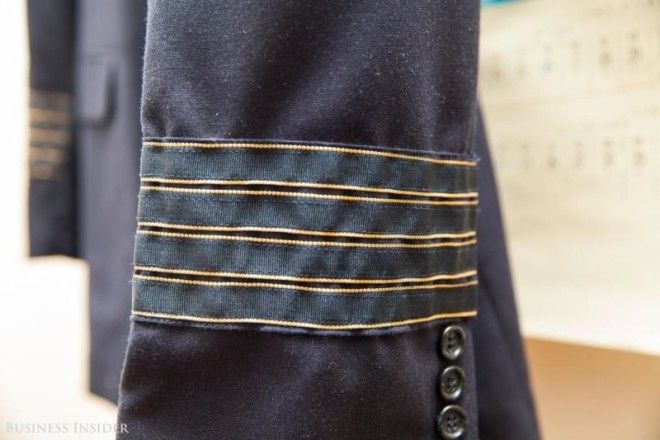
Four stripes were indicative of a captain, while three stripes were used for first officers or lead cabin flight attendants. The jacket pictured here was introduced in 1999 and is still in use today.

Pictured here is the captain's hat that is still in use today. It was introduced in 1985 and also included gold trimmings.
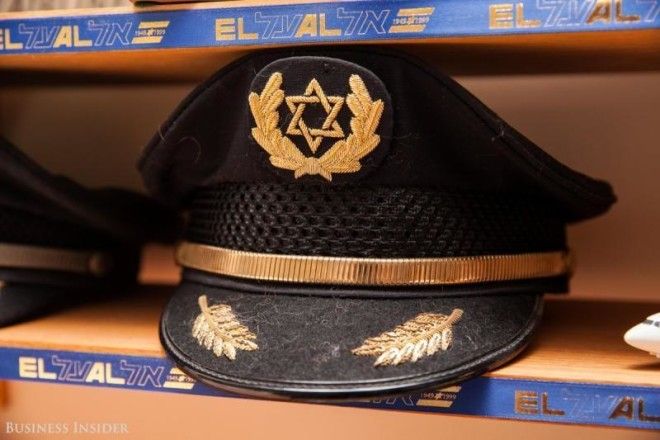
Belt buckles mirrored the symbols on the wings.

Blue coats were also used in the '90s.
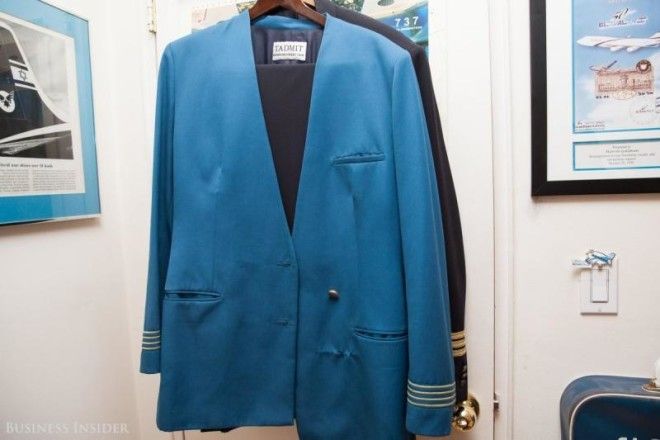
Pictured here are the light blue jackets that were introduced in the summer of 1994, though they were only in use for a few years. These jackets were typically worn only by the head male and female flight attendants.

Similarly, olive green coats were introduced in 1999, but since the color proved to be unpopular, it was scrapped after three years. Since then, the company has returned to a dark navy blue color.
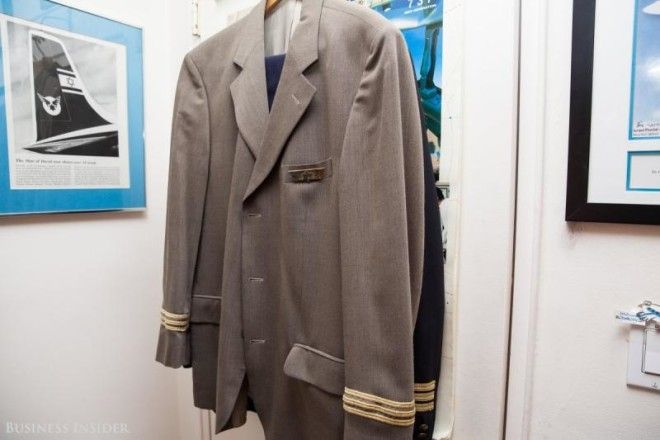
Men's ties also vary in their design and colors, though the ties pictured here, which come from the airline's recent uniforms, are all in shades of blue.

This tie pictured here displays the El Al logo that was generally used from the late '90s to the early 2000s.

Sometimes flight attendants would don different ensembles for special occasions, like in this photograph during the airline's first flight to Mumbai, India, and Bangkok, Thailand, in 1993.

In addition to clothing items, Goldman's collection includes amenity kits that date back to the '80s and came stocked with everything from slippers to spare buttons and sewing kits.
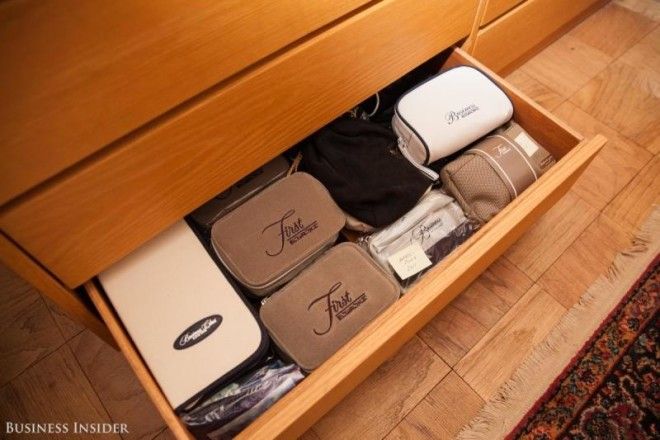
He also has about 150 different pieces of china that he has collected from the airline throughout the years.

Goldman has kept various ads that showcase the uniforms worn by flight attendants and other airline staff over the years, which guests can see when visiting his museum.

